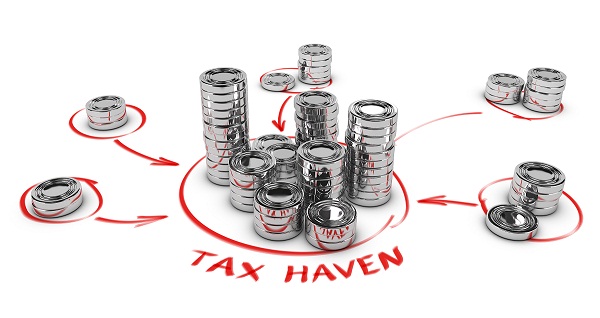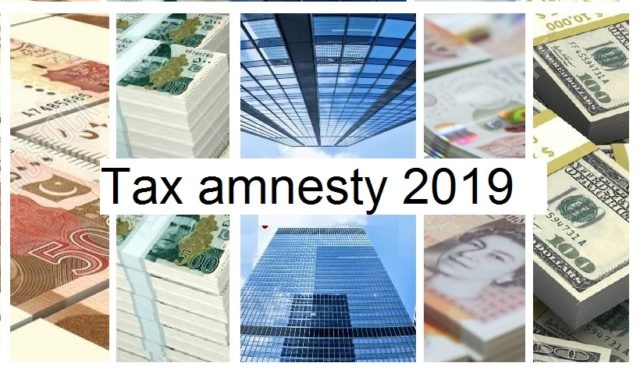Think Availing the Tax Amnesty
No place to hide!
Bilal Hassan
In view of a largely undocumented economy, the government has introduced a tax amnesty to enable all citizens of Pakistan, except public office holders and their dependents, to declare their undeclared assets and incomes. Under this amnesty, taxable persons may declare benami assets, foreign liquid assets, bank accounts, undisclosed sales and all types of other moveable and immoveable assets by paying nominal tax as the purpose of the tax amnesty is to enhance the size of formal economy. Unlike the tax amnesty 2018, this scheme covers benami assets, benami bank accounts, undisclosed sales and expenditure, bank credit entries and tax demands under litigation in courts of law, i.e. the appellate tribunals, the High Courts and the Supreme Court of Pakistan.
Primarily, the tax amnesty has been introduced to allow undocumented economy’s inclusion in the taxation system and to serve the purpose of economic revival and growth by encouraging a tax-compliant economy. However, the Federal Board of Revenue (FBR) is eyeing to generate sizeable revenue through this scheme in order to mitigate immense pressure on revenue side as it has been facing mammoth shortfall in revenue generation vis-à-vis assigned revenue target.
Why should taxable persons holding undeclared foreign assets avail themselves of tax amnesty? It is because Pakistan is signatory to the OECD Multilateral Convention on Mutual Administrative Assistance in Tax Matters and the OECD Multilateral Competent Authority Agreement on Automatic Exchange of Financial Account Information. Under these agreements, Pakistan has been collecting from and providing financial account information to foreign tax jurisdictions. As the mechanism of automatic exchange of information exposes hidden offshore assets, investments, income and accounts of resident Pakistanis to the tax authorities, i.e. the FBR, taxable persons failing to avail tax amnesty will face potential civil, tax and criminal penalties for not reporting.

Furthermore, significant legislative changes have been introduced to the Income Tax Ordinance, 2001 (ITO) and the Income Tax Rules, 2002 (ITR) by removing time limitation for probing sources of foreign assets, investments and expenditures through Finance Act 2018, making it possible to tax any foreign asset discovered in any year. Additionally, immunity from probing foreign remittances has been limited to Rs 10 million per year. Any amount received beyond this threshold will be liable to be probed and taxed from tax year 2019 onwards. Similarly, filing of foreign income and asset statement is mandatory and failure to file or disclose foreign assets in the statement will attract penalty of 2% of the value of the asset or income for each year of default.
Why should taxable persons having benami assets and benami bank accounts avail themselves of tax amnesty? It is because the Benami Transactions (Prohibition) Act and the Benami Transaction (Prohibition) Rules have already entered into force. Strict punishments for persons entering into benami transactions have been provided under the benami law. Any person found guilty of the offence of benami transaction or holding benami property will be punishable with rigorous imprisonment of at least one year, which may extend to seven years; and fine up to 25% of the fair market value of the property. Furthermore, any person or any officer upon furnishing false information or documents to any authority in any proceeding under the Benami Law will be punishable with rigorous imprisonment of at least six months, which may extend to five years; and fine up to 10% of the fair market value of the property.
Why should taxable persons having undeclared and concealed domestic assets, income, expenditures, investments and bank accounts avail themselves of tax amnesty? It is because some of the offences involving tax evasion under the ITO have recently been included in the list of predicate offences to be investigated and prosecuted under the Anti-Money Laundering Act 2010 (AMLA). Giving knowingly and deliberately false statement in verification in any return or any other document submitted under the ITO 2001 will be predicate offence provided tax sought to be evaded is Rs 10 million or more. Such an offence is punishable on conviction with a fine up to Rs 100,000 or imprisonment up to three years or both fine and imprisonment under section 192 of the ITO 2001.
Another predicate offence under the ITO 2001 is concealment of income or furnishing of inaccurate particulars of income that involve tax evasion up to or greater than Rs 10 million. Under section 192A of the ITO 2001, such an offence is punishable on conviction with imprisonment up to two years or fine or both.
Knowingly or recklessly using false National Tax Number (NTN) in a return or in any other prescribed document where tax sought to be evaded is Rs 10 million or more also constitutes predicate offence. Such an offence is punishable on conviction with a fine up to Rs 50,000 or imprisonment up to two years or both under section 194 of the ITO 2001.
 A person who knowingly and willfully aids, abets, assists, incites or induces any other person to commit an offence under the ITO 2001 which result in tax evasion of Rs 10 million or more, such an offence is included in the list of predicate offences. Under section 199 of the ITO 2001, such an offence is punishable on conviction with a fine or imprisonment up to two years or both.
A person who knowingly and willfully aids, abets, assists, incites or induces any other person to commit an offence under the ITO 2001 which result in tax evasion of Rs 10 million or more, such an offence is included in the list of predicate offences. Under section 199 of the ITO 2001, such an offence is punishable on conviction with a fine or imprisonment up to two years or both.
Nonetheless, punishments under the AMLA are more rigorous and severe. Pursuant to proceedings under section 9 of the AMLA, if a person found guilty of money laundering concerning the offences discussed above, such a person will be punished with rigorous imprisonment up to 10 years but not less than 1 year besides fine up to Rs 1 million. Moreover, property involved in money laundering or property of corresponding value will subject to forfeitures. Amount of fine is liable to be increased up to Rs 5 million in case of company and every director, officer or employee of the company found guilty of such offences.
Notwithstanding punishments prescribed under the AMLA, if tax amnesty 2019 not availed, taxable persons will have to pay more tax assessed on concealed assets, investments, expenditures and sales established by the tax authorities pursuant to proceedings under section 111 of the ITO. Additionally, such taxable persons will be liable to pay penalties prescribed under section 182 of the ITO and additional tax under section 205 of the ITO.
 Jahangir's World Times First Comprehensive Magazine for students/teachers of competitive exams and general readers as well.
Jahangir's World Times First Comprehensive Magazine for students/teachers of competitive exams and general readers as well.



